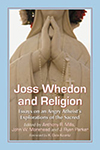Kidron: The shared wonder of film
As part of TED’s series in 2012 on “The power of film” Beeban Kidron (director of the second Bridget Jones movie) gave a speech titled “The shared wonder of film” She started off:
“[…]where, in our increasingly secular and fragmented world, do we offer communality of experience, unmediated by our own furious consumerism? And what narrative, what history, what identity, what moral code are we imparting to our young?”
She indirectly invoked religious themes in an academic setting as she pointed out the secular nature of our society and asked for moral code, that is often associated with pr derived from religious doctrine.
Later on she said:
“What was common to us all 40 years ago — the telling of stories between generations — is now rarified. As a filmmaker, it worried me. As a human being, it puts the fear of God in me. What future could the young build with so little grasp of where they’ve come from and so few narratives of what’s possible? The irony is palpable; technical access has never been greater, cultural access never weaker.”
That’s one way you probably never thought of the connection between film and religion: The storytelling nature and its decline on a global level made a filmmaker worry about the future and used this phrase to express it.
Most of the presentation focused on the FILMCLUB initiative she started. She and the organization created a framework to show good, curated movies to children and contextualized them by having conversations afterwards. She described it as going beyond being an individualistic experience: a communal one. She listed the positive effects the program had on children as a whole.
“The films provided communality across all manner of divide. And the stories they held provided a shared experience.”
This again reminded me that one of the earliest and most enduring type of “communal experience” is shared praying or service at churches of all kinds. I doubt that she was trying to recreate such experiences in school settings. Her explicit goals of educating and enriching the lives of children are clear and applaudable. However she clearly thinks about the connections we lose because out secularization.
Watch her presentation below:







